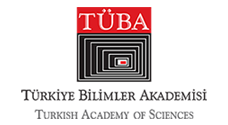Reflections on Global Transformations in Wargaming: A Creative Experience at National Defense University
Reflections on Global Transformations in Wargaming: A Creative Experience at National Defense University
The present study will examine the wargaming experience at the Turkish National Defense University. As the existing literature discusses the changing nature of warfare, this change is also reflected in the context of military education. In Türkiye, the Turkish National Defense University represents a significant institution for the provision of military education. In addition to the aforementioned discussions on the change in the style of warfare, the war game is becoming an increasingly central component of military training in conjunction with the advancement of technology. In the contemporary era, wargaming has become a common methodology utilized to enhance military leadership, decision-making, and policy-making processes, particularly within the domains of security and strategy. In attempting to anticipate the nature of future wars, wargames offer both insight and guidance in determining the requisite institutional capacity. Nevertheless, the utility of wargaming has expanded beyond its initial role as a military training instrument, with researchers in political science and international relations also employing it. Such simulations can be utilized to enhance the capacity for strategic foresight, encompassing both current political developments and decision-making processes. At the Turkish National Defense University, war games are conducted annually at the conclusion of the training program to evaluate the efficacy of the learning process. In these games, which are attended by a select group of military leaders, participants gain invaluable experience in demonstrating leadership in high-pressure situations, from modern warfare to potential future conflicts. However, as with any tradition, this wargaming practice has its own limitations and shortcomings. This article will explore ways to develop and improve this tradition.
Click to cite.
Note: You can access the citation text via the ‘Actions’ tab in Crossref.
